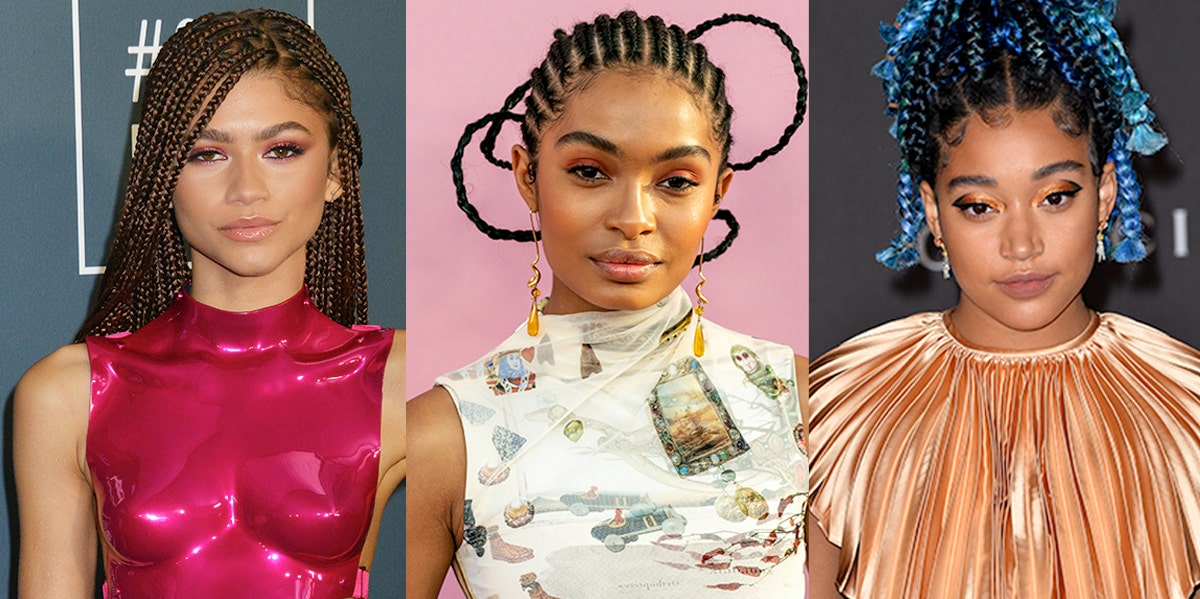Hollywood's Obsession With Casting Light-Skinned Black Women Needs To Stop
Dark-skinned actresses are just as capable of being cast in roles.
 Featureflash Photo Agency, Ovidiu Hrubaru, & Tsuni-USA / Shutterstock
Featureflash Photo Agency, Ovidiu Hrubaru, & Tsuni-USA / Shutterstock Whenever a film is being made, especially one that is advertised as being "diverse," it seems as if Hollywood rotates through the same catalog of light-skinned Black actresses, completely disregarding the roster of other very capable darker-skinned actresses.
The range of Blackness depicted on the screen is not an accurate representation of Blackness in real life.
Despite the rise of films like Queen & Slim that has a dark-skinned Black woman as the lead, many people are still not satisfied with the representation of all Black women in media.
Hollywood’s colorism problem needs to be fixed.
The media has far too long perpetuated the standard of Black beauty in America.
And that standard has furthered allowed colorism to run rampant in the Black community.
Lighter-toned Black women have always been given a certain privilege over their darker-toned counterparts.
They are deemed as more desirable, better looking, while dark-skinned women are deemed as ugly and “too dark.”
For years, dark-skinned Black women have lived in the shadows, hiding their complexions, and bearing the brunt of society.
But these claims aren’t anything new.
When Hollywood brings movies about race or Black experience to the table, the first people who should be considered as leads should be dark-skinned actresses.
Why is color in Hollywood only restricted to one shade?
Black women are beautiful in any color — especially dark.
Even Zendaya has openly admitted to her struggles not even coming close to that of a woman with darker skin.
“If I get put in a position because of the color of my skin where people will listen to me, then I should use that privilege the right way,” she said in an interview.
There is proof of directors and producers being able to successfully cast dark-skinned actresses, and still create blockbuster movies/tv shows that do immensely well.
Black Panther, Girl’s Trip, Moonlight, and so many more are great examples of successful films with dark-skinned actors and actresses as the leads.
Dark-skinned Black women can do the same work that light-skinned Black women can do.
RELATED: Why PewDiePie Should Stay Banned From Facebook Because Of His Inexcusable Racist Past
They can act in the same movies, headline the same shows, and bring Hollywood the same amount of money.
This problem doesn’t lie with light-skinned actresses.
After all, they are not the ones perpetuating this stereotype and actively keeping dark-skinned women out of the room.
Directors, writers, and producers are the ones who need to make this change.
They are the ones who need to fight for more representation in their films, because it is not enough to cast Zendaya, Yara Shahidi, Amandla Stenberg, or Halle Berry, and declare that their films have reached their quota on diversity.
I’m always happy to see any Black woman have their moment to shine, to see their excellence be broadcasted to the world.
It’s no secret that Black actresses face extreme hardships in the film industry, and don’t always have luck when securing roles, and that they are often passed over for white actresses.
Let's be clear: there is no such thing as being “completely inclusive” if Hollywood isn’t leaving space for dark-skinned Black actresses, too.
Nia Tipton is a writer living in Chicago. She covers pop culture, social justice issues, and trending topics. Follow her on Instagram.

